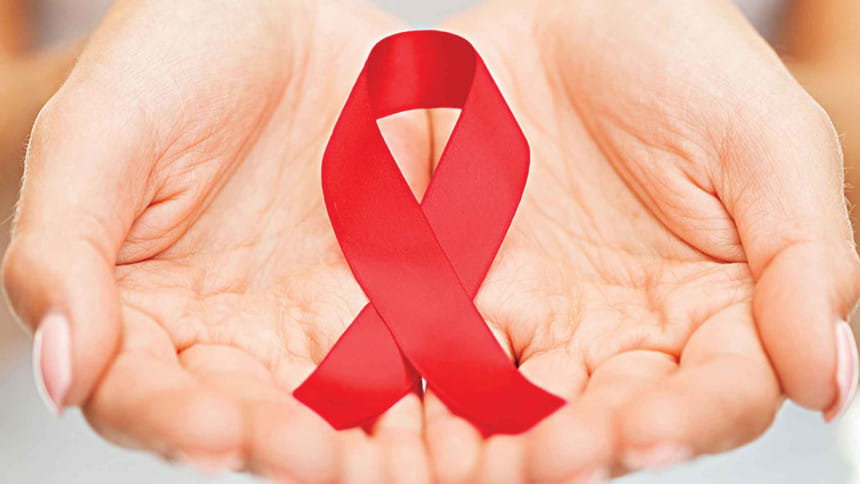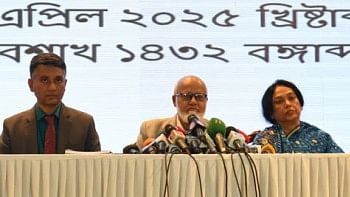World AIDS Day reminds us that the virus is still here

The World AIDS Day, observed on December 1, is a reminder to all countries that we must not forget about this infectious disease even when we are desperately fighting the Covid-19 pandemic. In fact, the pandemic has actually worsened the plight of HIV positive patients who are more vulnerable to Covid-19 and also have had to face disruptions in their regular medication, which can have devastating consequences. While the infection rate in Bangladesh is much lower than that of many other countries, thanks to timely interventions by the government and NGOs, there are still around 13,000 HIV patients living in the country, according to national and international organisations. Of the total number, 6,606 have so far been brought under treatment. Last October, according to the National AIDS/STD Control Programme (NASP) data, the total number of HIV cases was 7,374; out of them, 1,242 people died.
These numbers are not insignificant and the pandemic has made HIV positive individuals even more vulnerable. A report in this paper has revealed the plight of sex workers who are HIV positive, who have not been able to get their medicine from government clinics that offer it for free. Sex workers are a high-risk group to contract HIV which may later develop into AIDS if left untreated. Their clients, too, are in the at-risk group which may extend to their wives/partners and future children. Drug users who share needles are also another at-risk group. Thus the possibility of the spread of the disease is always there.
It is commendable that the government has, through the Department of Health, been providing free medicine to AIDS patients since 2012 and conducting social healthcare activities to prevent AIDS. The ARV drugs are free and distributed at six major hospitals around the country, including Bangabandhu Sheikh Mujib Medical University (BSMMU) and Infectious Diseases Hospitals (IDH) in Dhaka. In addition, there are drop-in centres (DIC) that do HIV screenings, methadone and Antiretroviral (ARV) distribution as well as provide education on prevention and treatment of the disease. During the pandemic, however, many of these DICs have been temporarily closed, depriving HIV positive individuals of these vital services. Hopefully, those will be reopened soon.
While uninterrupted drug distribution and other services are essential, creating widespread awareness among the public about AIDS is also crucial. This includes letting people, especially young people, know how they can prevent getting infected as well as efforts to sensitise our society to treat HIV positive individuals with compassion and dignity and not with derision and hate. The government and all sections of society should work together to disseminate information on AIDS and help to treat and rehabilitate those who are HIV positive. We may be among the lucky nations to have lower numbers of HIV positive cases but we must never become complacent about it and keep on working towards attaining a zero number of new cases.

 For all latest news, follow The Daily Star's Google News channel.
For all latest news, follow The Daily Star's Google News channel. 



Comments